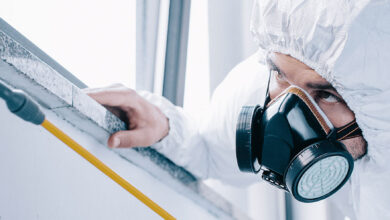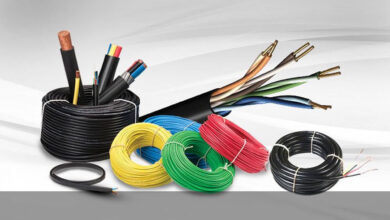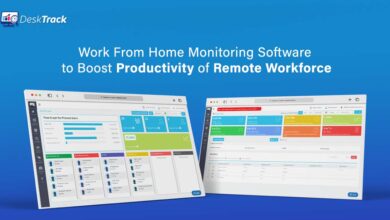Common Plumbing Myths Debunked: Essential Tips for Homeowners
Plumbing Myths Debunked & Expert Tips
Introduction
Have you ever heard that a leaky faucet is just a minor annoyance, or that chemical drain cleaners are the best solution for clogs? If so, you’re not alone. Many homeowners believe these common plumbing myths, often leading to bigger problems down the line. Understanding the truth behind these myths can save you time, money, and a lot of headaches.
Common Plumbing Myths Debunked: What Homeowners Need to Know
Myth 1: Leaky Faucets Aren’t a Big Deal
The Real Impact of Leaky Faucets
A leaky faucet might seem like a small issue, but those drips add up. A single drip per second can waste over 3,000 gallons of water a year. This not only increases your water bill but also contributes to water scarcity issues.
How to Fix a Leaky Faucet
Fixing a leaky faucet often involves replacing a worn-out washer or O-ring. It’s a relatively simple task that can save you a lot of water and money in the long run. If you’re not comfortable doing it yourself, a plumber can usually handle it quickly and affordably.
Myth 2: Chemical Drain Cleaners Are Safe and Effective
The Dangers of Chemical Drain Cleaners
Chemical drain cleaners might promise a quick fix, but they can cause more harm than good. These chemicals can damage your pipes, leading to costly repairs. They also pose serious health risks if mishandled and can harm the environment.
Safe Alternatives for Unclogging Drains
Instead of reaching for chemical drain cleaners, try using a plunger or a plumber’s snake. Baking soda and vinegar can also be effective for minor clogs. For persistent issues, it’s always best to call a professional plumber for your drainage solution
Myth 3: You Can Flush Anything Down the Toilet
What Should and Shouldn’t Be Flushed
Toilets are designed to handle human waste and toilet paper—nothing more. Flushing items like baby wipes, cotton swabs, or dental floss can cause severe blockages. These materials don’t break down like toilet paper and can lead to clogs that require professional intervention.
Consequences of Flushing the Wrong Items
Flushing inappropriate items can result in blockages, sewage backups, and significant damage to your plumbing system. This can lead to expensive repairs and unsanitary conditions in your home.
Myth 4: All Plumbers Are the Same
How to Choose a Reliable Plumber
Not all plumbers have the same level of expertise or professionalism. When choosing a plumber, look for licensed and insured professionals with good reviews. For an overview of essential plumbing skills, you can read about the basics of plumbing repair. Ask for recommendations from friends and family to find someone trustworthy.
Red Flags to Watch Out For
Beware of plumbers who offer unusually low estimates, lack proper licensing, or pressure you into unnecessary repairs. A reliable plumber will provide transparent pricing and clear explanations of the work needed.
Myth 5: Plumbing Fixtures Are Maintenance-Free
Importance of Regular Maintenance
Plumbing fixtures, like any other part of your home, require regular maintenance to function correctly. Ignoring maintenance can lead to leaks, clogs, and other issues that can be costly to fix.
Tips for Maintaining Plumbing Fixtures
Regularly check for leaks, clean aerators, and showerheads, and ensure your water pressure is at an appropriate level. Simple tasks like these can extend the life of your plumbing fixtures and prevent major issues.
Myth 6: Running Water Clears Garbage Disposal Clogs
Proper Garbage Disposal Use
Running water while using the garbage disposal can help, but it’s not a cure-all for clogs. Avoid putting fibrous vegetables, grease, or coffee grounds down the disposal. These items can cause significant blockages.
Effective Methods to Prevent Clogs
To keep your garbage disposal running smoothly, grind ice cubes occasionally to clean the blades and always run plenty of water before and after use. For persistent clogs, a professional plumber can provide a thorough cleaning.
Myth 7: Minor Plumbing Issues Can Wait
Risks of Delaying Repairs
Putting off minor plumbing repairs can lead to major problems. A small leak can turn into a burst pipe, and a minor clog can escalate into a complete blockage. Addressing issues promptly can save you from costly repairs down the road.
Common Issues That Require Immediate Attention
Don’t ignore dripping faucets, slow drains, or unusual noises from your plumbing. These can be signs of underlying problems that need immediate attention to prevent further damage.
Myth 8: Plumbing Is a DIY-Friendly Task
When to DIY and When to Call a Professional
While some minor plumbing tasks can be DIY projects, many require professional expertise. Installing a new faucet or unclogging a drain might be manageable, but more complex tasks like pipe repairs or water heater issues should be left to the pros.
Potential Pitfalls of DIY Plumbing
DIY plumbing can lead to mistakes that cause more harm than good. Incorrect installations or repairs can result in leaks, water damage, and costly fixes. Knowing your limits and calling a professional when needed is crucial.
Myth 9: Plungers Fix All Clogs
Types of Clogs and Appropriate Tools
Plungers are great for simple clogs, but they’re not a one-size-fits-all solution. For tougher clogs, you might need a plumber’s snake or a hydro-jetting service. Using the right tool for the job can make a significant difference.
Alternative Methods to Clear Stubborn Clogs
If a plunger doesn’t work, try using a mixture of baking soda and vinegar, followed by hot water. If this doesn’t clear the clog, it’s time to call in a professional plumber for a more thorough solution.
Myth 10: Low-Flow Toilets Don’t Work Well
Efficiency of Modern Low-Flow Toilets
Modern low-flow toilets are designed to use less water without sacrificing performance. Advances in technology have made these toilets more efficient and effective than ever before, dispelling the myth that they don’t work well.
Environmental and Financial Benefits
Low-flow toilets save a significant amount of water, which is good for the environment and can also lower your water bills. Over time, the savings can add up, making these toilets a wise investment for any homeowner.
Myth 11: Hot Water Heaters Don’t Need Maintenance
Importance of Regular Hot Water Heater Maintenance
Like any major appliance, your hot water heater needs regular maintenance to function efficiently. Flushing the tank annually can help remove sediment buildup that can reduce efficiency and shorten the lifespan of the heater.
Signs Your Hot Water Heater Needs Attention
Watch for signs like fluctuating water temperatures, strange noises, or discolored water. These can indicate issues that need professional attention to prevent breakdowns and extend the life of your heater.
Myth 12: A Dripping Faucet Is Just an Annoyance
Hidden Costs of a Dripping Faucet
A dripping faucet can waste a surprising amount of water over time, leading to higher water bills. It can also be a sign of a larger plumbing issue that needs to be addressed.
Easy Fixes for Dripping Faucets
Most dripping faucets can be fixed by replacing a worn-out washer or cartridge. If you’re not comfortable doing this yourself, a plumber can quickly and easily make the repair for you.
Conclusion
Understanding and debunking these common plumbing myths can help you maintain your home’s plumbing system more effectively. By taking proper care of your plumbing and addressing issues promptly, you can avoid costly repairs and ensure your plumbing lasts for years to come. Stay informed and don’t hesitate to call a professional when needed.



